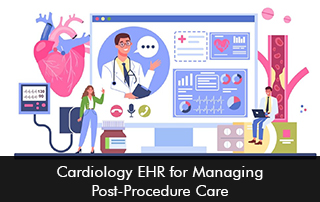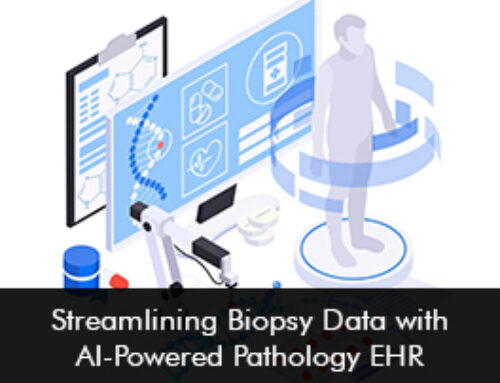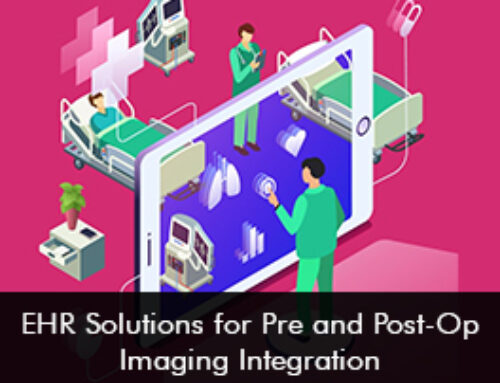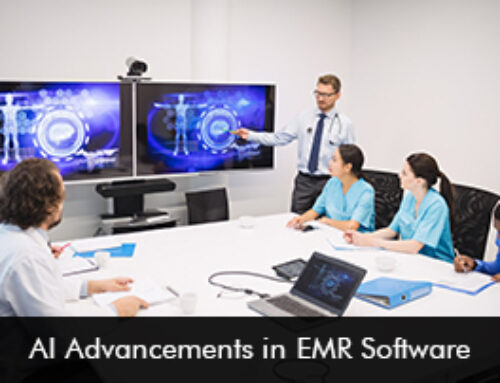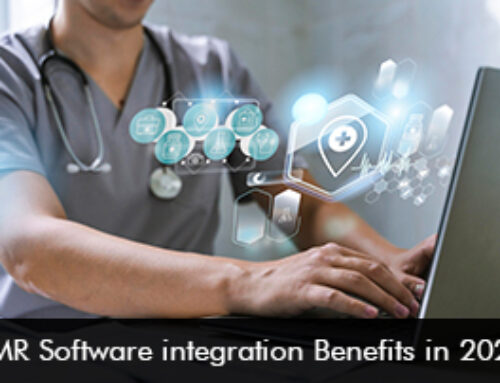In the field of cardiology, Electronic Health Record (EHR) and Electronic Medical Record (EMR) software have transformed the way post-procedure care is managed. These digital platforms ensure that cardiologists have instant access to patient data, reducing errors and improving treatment precision. As cardiovascular diseases remain a leading global health concern, the need for efficient, data-driven decision-making has never been greater. Modern EHR software not only centralizes medical records but also integrates diagnostic tools, remote monitoring, and AI-driven analytics to enhance patient outcomes. With the rise of value-based care, having a robust EHR system is no longer optional—it is essential for providing personalized, proactive, and efficient cardiac care.
The Importance of EHR Software in Cardiology
-
Comprehensive Data Management:
EHR software consolidates patient information, including medical history, medications, and diagnostic results, into a single, easily accessible platform. This centralization is crucial for cardiologists monitoring patients after procedures, allowing for quick retrieval of pertinent data.
-
Enhanced Communication:
EMR software fosters seamless communication among multidisciplinary teams. Cardiologists, primary care physicians, nurses, and other specialists can collaborate effectively, ensuring continuity of care and reducing the risk of information silos.
-
Improved Patient Engagement:
Many EHR systems offer patient portals, enabling individuals to access their health records, schedule appointments, and communicate with their healthcare providers. This engagement empowers patients to take an active role in their recovery and adhere to post-procedure instructions.
Key Features of Cardiology EHR Software
-
Integration with Cardiovascular Imaging:
Modern EHR systems integrate seamlessly with cardiovascular imaging modalities, such as echocardiograms and angiograms, allowing cardiologists to access and review imaging studies directly within the platform. This integration facilitates timely diagnoses and treatment planning.
-
Cardiac Device Management:
Advanced EHR software includes modules for tracking and managing cardiac devices like pacemakers and implantable cardioverter-defibrillators (ICDs). These features enable real-time monitoring and remote adjustments, ensuring optimal device performance and patient safety.
-
Risk Stratification Tools:
Incorporating sophisticated algorithms, EHR software can analyze patient data to calculate personalized risk scores. This functionality aids cardiologists in identifying high-risk patients and tailoring post-procedure care plans accordingly.
-
Interoperability and Data Exchange:
Effective EHR systems adhere to standards like HL7 FHIR, promoting interoperability and seamless data exchange among healthcare providers. This capability ensures that cardiologists have access to comprehensive patient records, enhancing coordinated care.
-
Clinical Decision Support:
EHR software equipped with clinical decision support tools provides evidence-based guidelines, alerts for potential drug interactions, and real-time recommendations, assisting cardiologists in making informed decisions during post-procedure care.
-
Telecardiology and Remote Monitoring:
The integration of telemedicine features allows cardiologists to conduct virtual consultations and remotely monitor patients’ vital signs, facilitating timely interventions and reducing hospital readmissions.
Top EHR Software Recommended for Cardiology Practices
-
NextGen Healthcare:
NextGen offers cardiology-specific EHR and practice management solutions with over 400 enhancements tailored to the specialty. Features include flexible documentation options, automated Appropriate Use Criteria (AUC) workflows, integrated Picture Archiving and Communication Systems (PACS), and efficient financial management tools.
-
Merge Cardio (IBM):
Merge Cardio provides a centralized, web-based view of patients’ complete records from all cardiology modalities. It offers sophisticated automated billing functions, enhanced image-sharing capabilities, AI-assisted diagnostics, and an improved user interface, streamlining workflows and improving patient care.
-
AdvancedMD:
AdvancedMD delivers a cloud-based platform combining EHR with practice management software. It features customizable cardiology templates, comprehensive practice management tools, integrated telehealth services, and enhanced patient engagement through mobile applications, optimizing clinical and administrative workflows.
-
Objective Medical Systems (OMS EHR):
OMS EHR is a cloud-based, cardiology-focused system offering comprehensive solutions with multiple reporting modules for popular diagnostics. It interfaces seamlessly with diagnostic equipment, supports integration with wearable devices, and incorporates AI-driven insights, enhancing decision-making and patient monitoring.
-
DrChrono:
DrChrono offers a cloud-based, customizable EHR platform accessible via mobile devices. It includes scheduling, billing, patient reminders, and a patient portal facilitating communication and data sharing, such as daily blood pressure readings. Its enhanced mobile access and improved patient portal features make it a versatile choice for cardiology practices.
In short, the integration of advanced EHR and EMR software in cardiology practices is pivotal for effective post-procedure care management. These systems enhance data accessibility, streamline workflows, and promote patient engagement, ultimately leading to improved outcomes. Selecting the right EHR software, tailored to the specific needs of a cardiology practice, is essential for maximizing these benefits and ensuring high-quality patient care.


